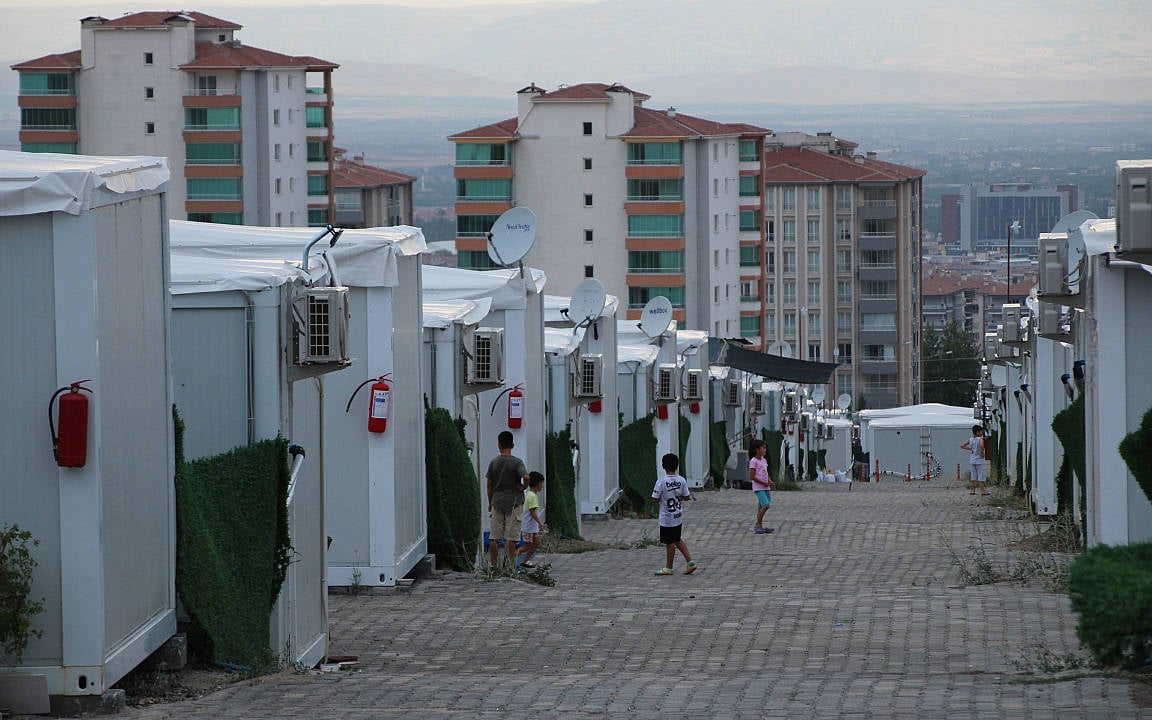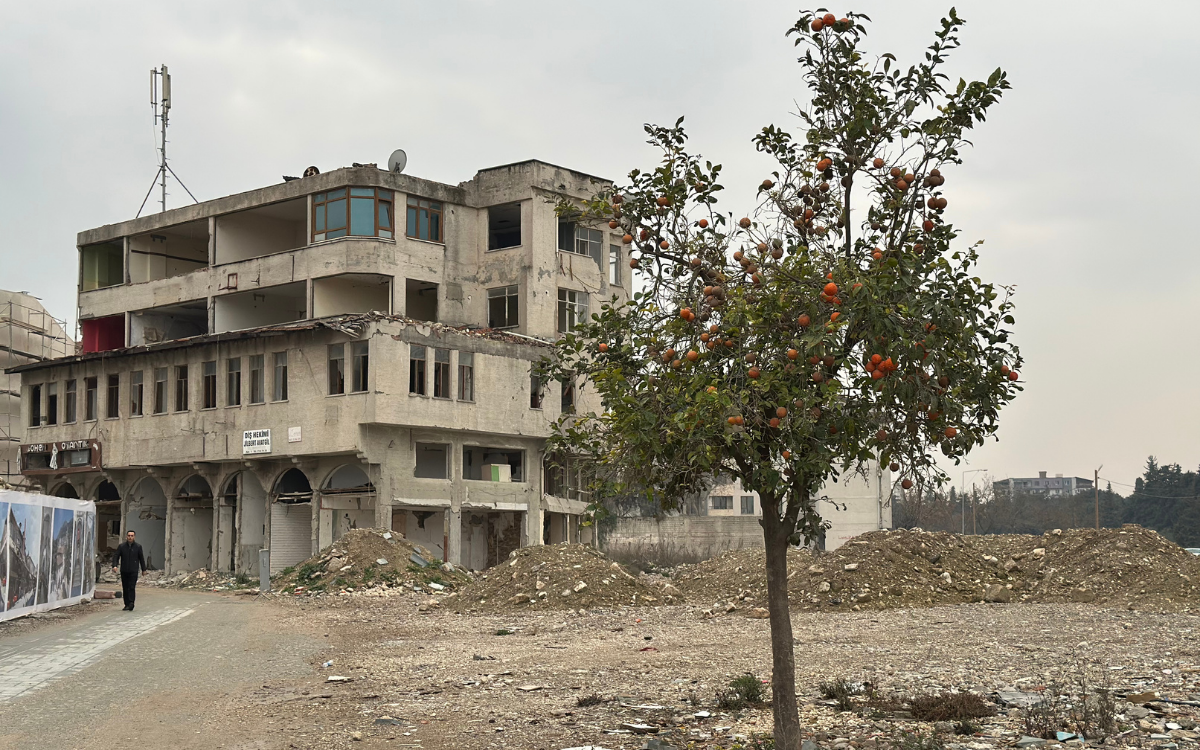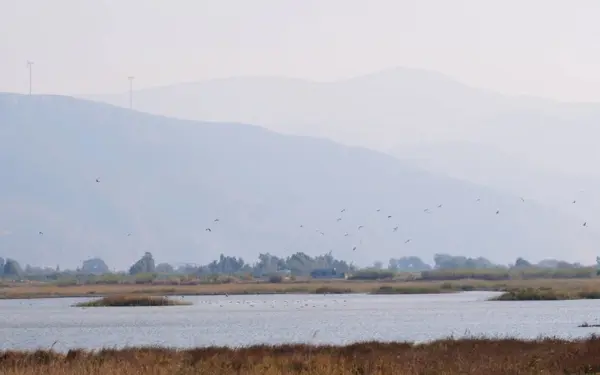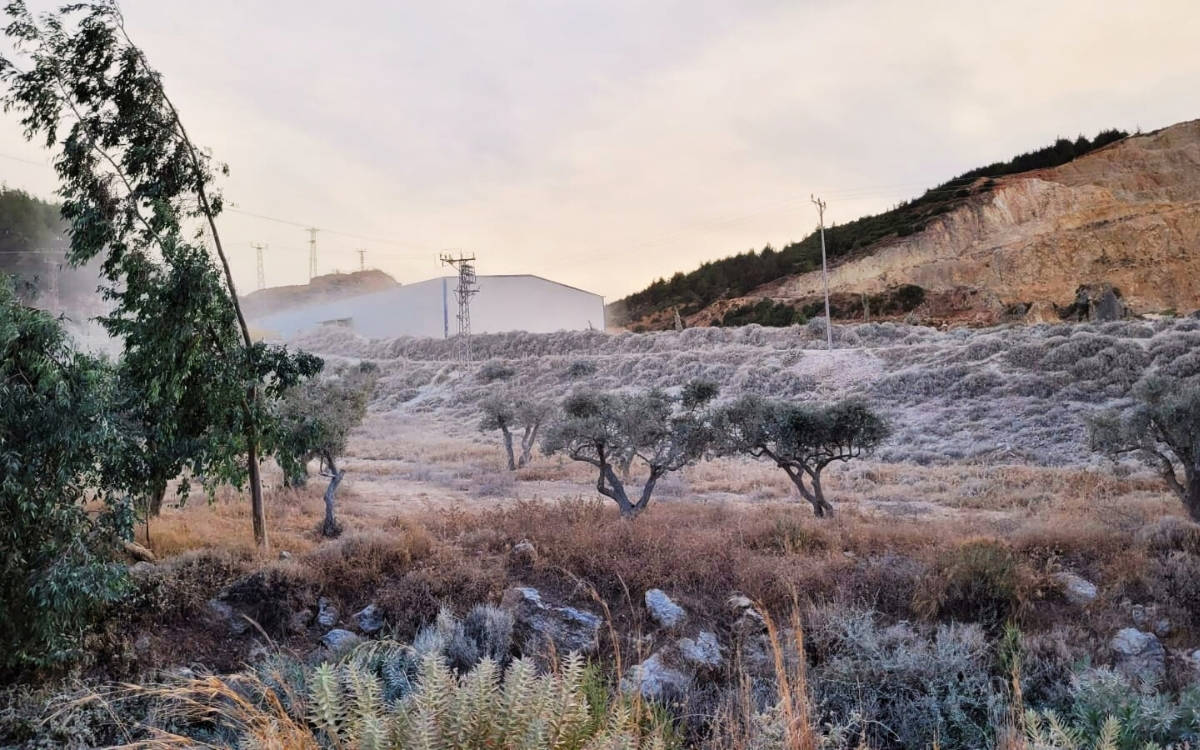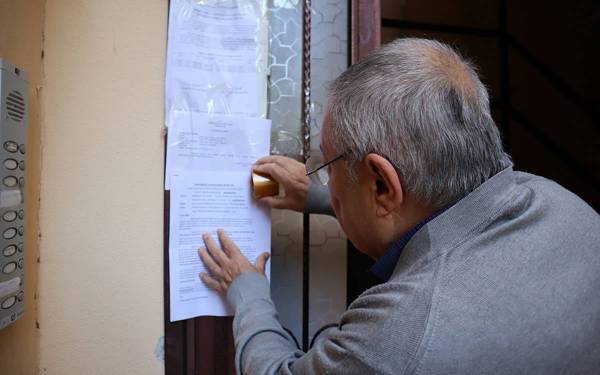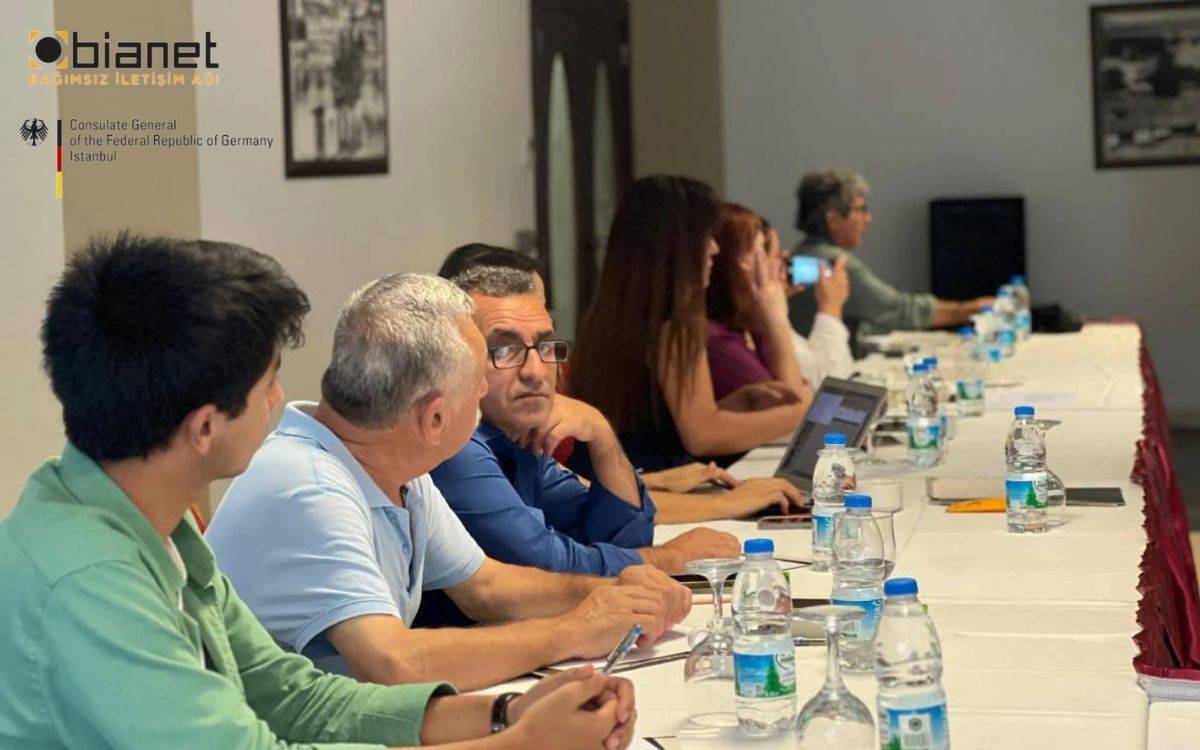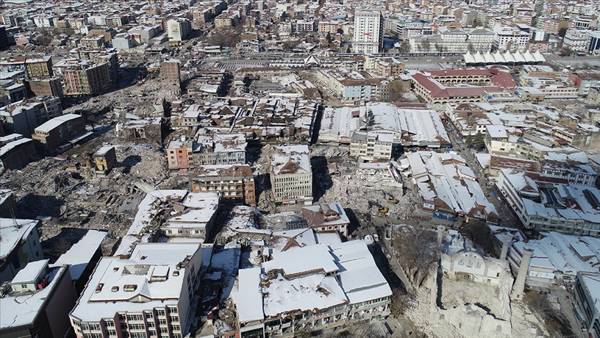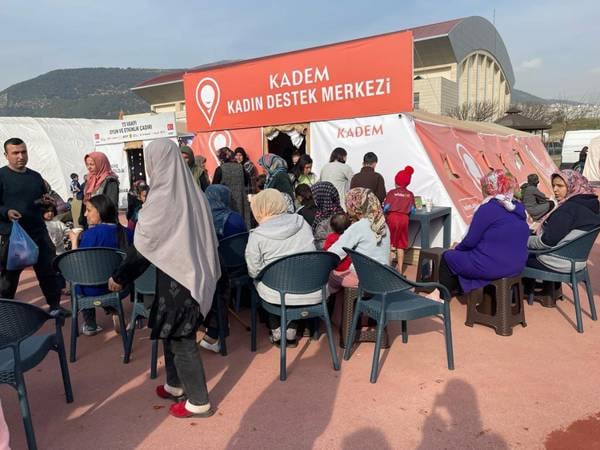Students in Malatya, one of the 11 provinces affected by the devastating earthquakes in Feb 2023, have been forced to continue their education while living in 21-square-meter containers. In this cramped space, they must eat, sleep, shower, and prepare for exams all at once.
These children, often without even a proper desk, are expected to take the same exams as their peers who still live in homes. Adding to their struggles, frequent power outages, internet problems, and the extreme heat in summer and cold in winter inside the containers make their situation even more challenging.
The head of the Malatya branch of the Eğitim-İş teachers’ union, Hüseyin Kara, said problems in education have not decreased but instead worsened in the province since the earthquakes
No new schools have been built to replace the heavily damaged or demolished buildings, he said. “Not a single new school has been built since the earthquake. Currently, 108 schools are operating within the facilities of other schools. Some buildings are shared by three different schools. When three separate schools share a single building, students, teachers, and administrators all face significant challenges.
“In these combined schools, class periods have been shortened—35 minutes for middle schools and 30 minutes for high schools. If you multiply this by the 180 school days in a year, it’s clear how much learning time is lost. It’s not hard to calculate the disadvantage this creates for students taking the same exams as others.
“Many of these students are living in containers. If they have multiple siblings, parents, or even grandparents in the same space, it’s impossible for them to study. With their basic needs already difficult to meet, focusing on lessons becomes almost impossible.”
Kara called on the provincial education authority and municipalities to establish properly equipped study halls near container areas, designed to withstand summer and winter conditions.
One cat, three people, and a 21sqm container
After the earthquakes, Yusuf Durdu, a master’s student in the Public Relations and Advertising Department at İnönü University’s Social Sciences Institute, moved to Güzelbahçe Container City with his brother, father, and cat. He shared his experience of writing a thesis while living in such conditions.
Durdu explained how the earthquake completely upended his life and said that having a private room in his previous home now feels like a luxury. For more than a year and a half, he has been struggling to live in a container with his father, brother, and cat. Despite the cramped space, he managed to complete his thesis and prepare for his doctoral studies.
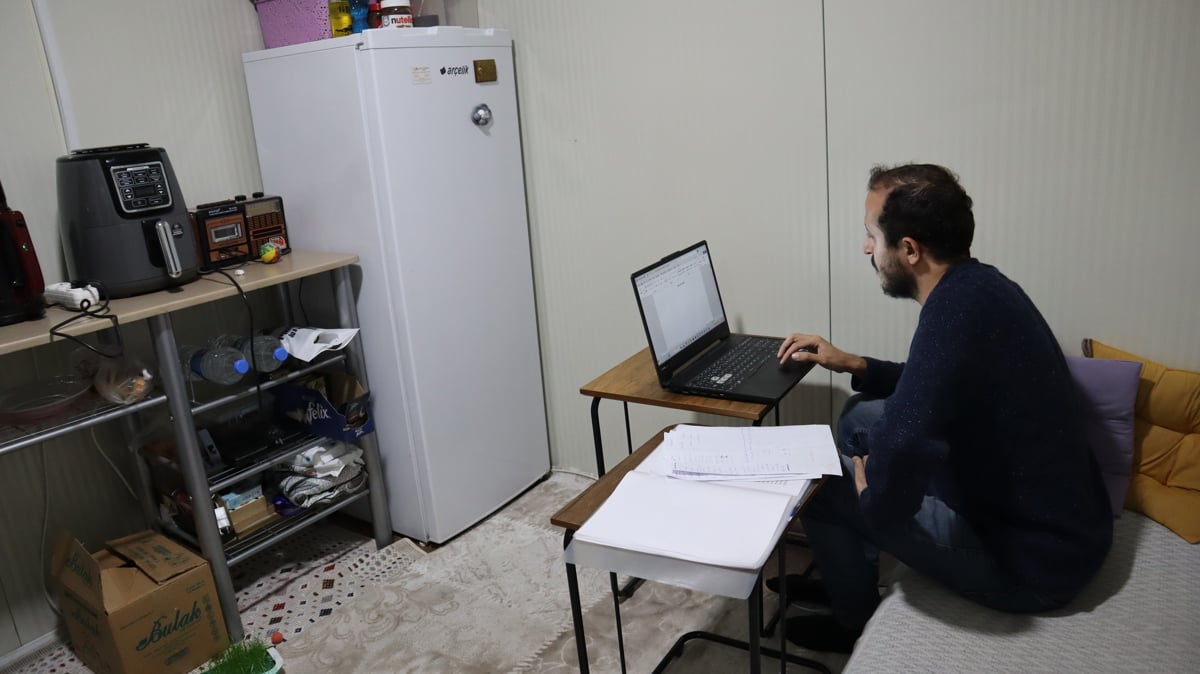
“After the earthquake, we stayed with relatives for a while and then moved into a container,” he said. My father, brother, cat, and I started a new life in a 21-square-meter space. Our container doesn’t have any partitions—it’s just an empty room, that’s all. Other containers provided by AFAD [Disaster And Emergency Management Presidency] were fully equipped with necessities, but ours was empty, and we had to furnish it from scratch. Because our home was severely damaged, we couldn’t retrieve any belongings. All I managed to save were a few of my books, stuffed into a laundry basket.”
Durdu noted that he couldn’t bring essential items such as a desk, chair, bookshelf, or other basic supplies a student would need. He also mentioned that the lack of internet infrastructure in the container city forced him to buy a portable modem every month, costing him 1,500 liras.
‘I Wait for everyone to sleep before i study’
Durdu highlighted the challenges of accessing online resources and the difficulties he faced, saying, “This container city is located in the center of Malatya, yet it has no internet infrastructure. I’m not the only student here. Over time, I had to get my own internet connection, which costs me between 1,500 and 2,000 liras per month. Many students here can’t afford this, and they are all struggling.
“I’m still trying to finish my thesis, but the lack of resources has caused significant delays. Studying in a container is particularly challenging because it’s a shared space. It’s not just my space, so I can’t keep asking people to stay quiet. When you’re writing a thesis, there’s no room for mistakes—one wrong data entry could ruin the entire project. You need a quiet environment, but that’s impossible in a container.
‘Education quality has declined’
Kasım Şimşek, a mathematics teacher at a private educational institution, explained that after the earthquake, many of his students left the city with their families. He noted that some of the remaining students are now living in containers and highlighted a noticeable decline in academic performance during exams.
Pointing out that students from larger families are particularly unable to study effectively in containers, Şimşek said, “The earthquake spared nothing in Malatya. I also lived in a container for a while, so I know how difficult it is. In a house, every room has a separate function, but now everything has to fit into 21 square meters. Imagine—your living room, bedroom, kitchen, bathroom, and even balcony are all squeezed into 21 square meters. In such circumstances, it’s impossible to have a dedicated space for studying. As a result, we cannot expect high performance from these students.
“The problem isn’t just the cramped space of the containers. Many students now need to complete their assignments online. Frequent power outages and the lack of internet only make already difficult conditions even worse.” (BAŞ/HA/VK)






